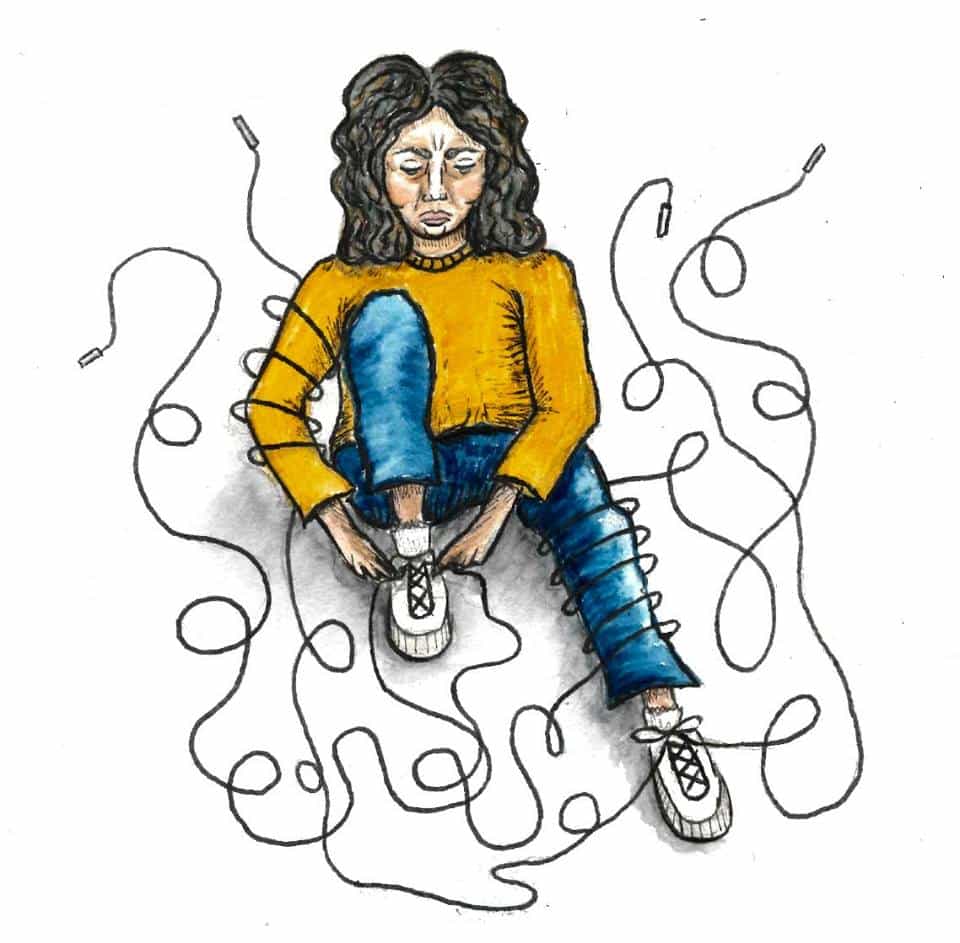Learning difficulties are a millennial thing, right? Older generations used to just get on with it. Or maybe people have always had learning difficulties, but because we didn’t understand cognitive science like we do today, they went misunderstood. I should know. I was diagnosed with the little known dyspraxia at age 11 – which until recently had a red squiggly line over it on Microsoft Word docs – and because it hasn’t been mainstreamed yet, unlike its cousins A.D.H.D. and dyslexia, people often don’t take it seriously. But this if I don’t have it, can’t see it, then it must cease to exist attitude is close-minded. As science develops and discovers, we should be ready to engage with its conclusions, ready to listen to its newest patients.
I’m 21 years old, three fourths of the way through a degree at a prestigious British university, with decent grades and decent future prospects. I can write well, read well, think well. But my dyspraxia means I struggle with many basic day-to-day physical and administrative tasks.
According to the Dyspraxia Foundation USA, dyspraxia is a “neurological disorder throughout the brain that results in life-long impaired motor, memory, judgment, processing and other cognitive skills.” Essentially, messaging in a particular area of my brain does not accurately transmit to my body. Dyspraxia is an umbrella term, affecting me most in gross and fine motor skills and perception of the senses.
Some things I cannot do: any and all contact sport, click my fingers, cut a slice of bread with a consistency of thickness, drive, dance to the beat, put change back in my purse when paying for something at the store before next Christmas, plait my hair, walk through a classroom without bumping into the edge of a table, deconstruct the meaning of the Google Maps arrow without doing a full 360.
Dyspraxia is complicated, weird and the most unsexy thing in the entire world, so I avoid talking about it. This reluctance is worsened, however, by the fact that people are rarely familiar with the term. When I try to explain dyspraxia, I’m told I’m mispronouncing dyslexia. Or people zone out after a second – because, fair enough, hand-eye coordination is a boring topic – and I’m left soliloquizing my sad, strange struggles. Sometimes they exclaim excitedly that they probably too are dyspraxic because they once knocked over a jar of pesto in a store.
Others look at me skeptically, infuriated I’ve added another learning difficulty to the list of clinical compensations they have to indulge. They proceed to make some backhanded comment, implying that what I am describing is a fake or trumped-up disorder, created by middle class helicopter parents addicted to compartmentalizing their children’s shortcomings. They will explain fulfilling prophecies to to me, assure me it’s “all in my head.”
I hadn’t heard of dyspraxia myself until I was nearly a teenager, but diagnosis didn’t kick-start my disability, or even intensify it. It just collected the long list of things Leah Just Can’t Do, or sometimes Can Do but Does Comically Slowly and Requires Full Concentration and Complete Silence, and placed them all under one ugly onomatopoeic word. My diagnosis also gave my childhood self the explanation I didn’t know I was waiting for. I wouldn’t have been able to articulate the impact struggling with an ambiguous array of activities at an unparalleled level to my classmates had on me, but I do remember feeling relief.
I felt a bit less lazy for not being able to make 3D paper mache shapes. I felt a bit less stupid for not being able to put a compass on a piece of paper and miraculously do math with it. I felt a bit less pathetic for pretending I needed the toilet whenever people were about to pick teams in sports to save myself the embarrassment of being picked last. (The last one’s a lie, I definitely still felt pathetic.)
There is little literature on dyspraxia, but Maxine Frances Roper did reflect on her experiences in The Guardian, writing “It was a relief to know there was a valid reason why, despite good teaching and hard work, I couldn’t grasp certain skills.” The word “valid” is important. When people reject the existence of my dyspraxia, I am denied any validation for my weird hardships. I start second guessing myself. I begin to feel a bit insane.
But I’m far luckier than most fellow sufferers. I attended a small, caring private school, which, for the most part, nurtured my differences and eventually identified my dyspraxia. My parents were able to afford the expensive education psychology test that granted me 25 percent extra time in public exams. Had I attended a big state school, I may have been written off by teachers of non-humanity subjects as lazy and stupid. I might have completely lost confidence and withdrawn from my studies, becoming a genuine self-fulfilling prophecy.
There are pretty bleak accounts of people diagnosed with dyspraxia later in life. They are often dismissed at school, unable to hold down a basic job in waiting or service. Dyspraxic people are also overrepresented in prisons and mental health hospital.
Studies anticipate approximately two percent of people have some form of dyspraxia. Diagnosis can halt and change trajectories. There are plenty of other people out there who also can’t open a corkscrew. They might just not know why.
![]()




































